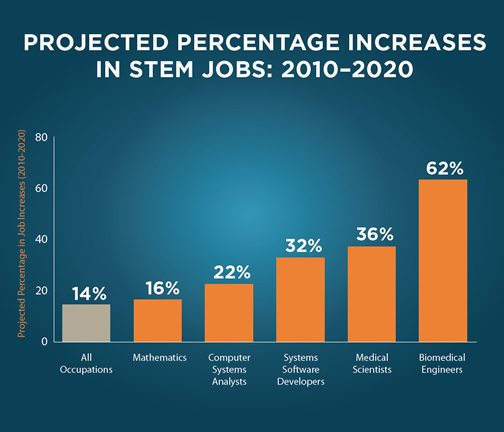This year, our
Picture Chelan County Photo Contest received 75 entries from 19 photographers.
The winning photographs are featured in our 2017 stewardship calendar. You can
purchase yours today for $10 at our office!
One of the goals of
the contest is to spread awareness about our clean water campaign. Chelan
County still has many water bodies that do not meet water quality standards. You can always access an updated water quality factsheet for the Wenatchee
River and its tributaries at http://cascadiacd.org/landowner-assistance_239.html.
Clean water is
essential to healthy habitats for animals, as well as for clean drinking water
sources.
There are ways for
you to help! Below are just a few of the changes you can make to create a
better future for yourself, your family, your community, and your environment.
In Your Home
Use low or no phosphorus detergents and soaps. One pound of phosphorus can grow 700 pounds
of algae. Too much algae reduces the amount of oxygen available for fish and
aquatic life.
Conserve water! Use it wisely. There is the same amount of
water on earth for all 7.5 billion of us. Only 1% of all of the water is fresh,
liquid water that we (humans) can use for drinking, cooking, and many other uses.
Properly maintain your septic system. Without regular maintenance, septic systems
can fail or overflow. Spills or leaks from a septic tank can cause raw sewage
to pollute drinking water supplies and nearby rivers and streams. For more
information and a list of qualified service providers, contact the
Chelan-Douglas Health District at (509)886-6450 or visit www.cdhd.wa.gov. Visit the USDA Rural Development website http://www.rurdev.usda.gov/Home.html for information on septic system repair programs.
In Your Yard
Many of us use
fertilizers, weed killers and pesticides to keep our lawns green and our
gardens productive. When we treat yard care as an all-out war, the ‘arsenal’ of
modern chemicals can take a toll on beneficial insects, wildlife and fish, not
to mention children and pets. When storm water flows over our yards and gardens
it takes pesticides, herbicides and fertilizers with it all the way to rivers,
lakes and streams. These chemicals poison wildlife and absorb oxygen from the
water. By using natural alternatives, such as compost, in place of chemical
fertilizers and limiting pesticide use to judicious, targeted applications, you
can have a beautiful backyard without causing collateral damage.
Keep Invasives at Bay. Noxious, or invasive, plant species can
outcompete native plants. They can destroy native plant and animal habitat,
damage recreational opportunities and clog waterways. Controlling noxious weeds
is good stewardship and it’s the law. To learn more, consult the Chelan County
Noxious Weed Board (http://www.co.chelan.wa.us/noxious-weed), the Washington State
Noxious Weed Control Board (www.nwcb.wa.gov), or the Nature Conservancy (www.invasive.org/gist/esadocs.html). Our native plant workshop will be a free informational event on
February 11th, 2017. If you are interested in purchasing native
plants, check out our native plant sale going on through March 1st,
2017: http://cascadiacd.org/files/documents/2017_plant_sale_order_form_-_1107.pdf
Restore Riparian Areas. Let us help you figure out how to create
healthier streamside habitat in the Wenatchee Valley. If you are a streamside
landowner, we may have funding to help create a project. Benefits of riparian
plantings and restoration projects include: bank stabilization, weed control,
shading, and flood attenuation, as well as providing habitat for fish and
wildlife. For additional information, contact Sandy Letzing at sandyl@cascadia.org or (509) 436-1601.
With Your Vehicles
Use a commercial car wash. Washing your car at a commercial car wash
ensures that the pollutants like oil and other chemicals on your car go into a
sewer system and get treated at a wastewater treatment plant, instead of
washing directly into streams and rivers through storm drains.
Keep your car in working order. Fix car leaks quickly and dispose of fluids
properly. Oil and other substances that leak from our cars onto roads,
driveways, and parking lots are washed into waterways by rain and melting snow.
That oil is toxic to people and wildlife.
With Your Animals
Keep livestock out of waterways. A 1,400 pound cow and 1,200 pound horse
produce roughly 88 and 60 pounds of waste per day, respectively. Left exposed
to the weather, this manure can contribute problematic bacteria and nutrients
to nearby waterways. By fencing your livestock out of streams and properly
composting manure you can reap the benefits of this natural fertilizer without
negatively impacting water quality. For more information on livestock exclusion
fencing and manure management contact the Cascadia Conservation District at
(509)664-9370 or visit www.cascadiacd.org.
Pick up after your pets. Dogs and other pets produce waste with lots
of toxic bacteria. If that bacteria gets into the water, the water becomes
increasingly unsafe to drink for animals and humans.
Next year’s photo
contest launches May 1st, 2017 and closes October 1st,
2017.
To learn more about
water conservation in our community, look at
~ Ava








